5:30 AM Saturday Dec 6, 2014
The Battle of the River Plate victory boosted the nation, writes Kurt Bayer
With bells clanging, whistles screeching and hundreds of booted sailors clattering to their firing stations, boy seaman Bob Batt had every right to be scared.
The German pocket battleship Admiral Graf Spee had been sighted about 400km from the busy shipping lane of Rio de la Plata, off Uruguay, in December 1939.
The first sea battle of World War II -- the first time a New Zealand warship took part in a naval battle -- was just moments away. In the middle of it all, alongside more than 300 Kiwis, was 17-year old Batt. Stuck in the bowels of HMS Achilles, he was studiously intent on his critical task. It was scary -- but there was no time to be scared.
The Achilles was part of a Royal Navy wolf pack hunting the heavily armed Graf Spee, which had already sunk nine British merchant ships. Now it was charging straight at them.
Batt is one of a handful of survivors from the Battle of the River Plate in the early days of World War II.
Born in Napier in 1922, he'd always had an affinity with the sea.
"I lived on the water," he said. "As a boy, I had my own canoe, was always on the water, just lived for it."
There were no naval ties in his family. But there was never any question he was going to join the Navy. At 15, he left school and signed up as a boy seaman. For the first two years, he was based on HMNZS Philomel at Devonport Naval Base. Training was relentless so, when war broke out, the teenager and his fellow boy sailors embraced the adventure.
The night before the battle, the Achilles' crew were unaware of what lay ahead. In the early morning murk, the Graf Spee spotted the Achilles alongside British cruisers HMS Ajax and HMS Exeter.
German captain Hans Langsdorff had previously stuck to a self-imposed tactical rule of not engaging enemy warships.
"But for some reason, that day he would break his own rule and seek an engagement with the three cruisers," said naval historian Michael Wynd.
At 6.18am on December 13, 1939, the Graf Spee opened fire, signalling the start of the engagement which would go down in military history.
Splitting off from the other two Allied ships, the Achilles returned fire. Its smaller four-inch guns and two main gun turrets boomed across the South Atlantic Ocean.
Down below in the transmission station, the "blimmin' racket" of each salvo filled Batt's ears.
His task now became ever more important. When the ship rolled, he operated two levers that controlled a dot in the middle of a square. It represented the aim of the guns.
Mistakes could be fatal -- for him and hundreds of his mates on board.
"My thoughts were, 'at last we were doing something worthwhile'," Batt says from his Napier home, looking back on the action which celebrates its 75th anniversary on December 13.
Aucklanders gave the Achilles crew an enthusiastic welcome in 1940. Photo / Herald Archives
"We were finally in action ... We weren't worried or upset. It wasn't frightening, I don't know what you'd call it. Because we were all seaman boys, I suppose, no fear."
Batt stayed at his job. All the while he kept half an ear open for progress reports from on deck:
"The only people that really know what is really going on are those on the bridge and the signallers. The guys in the turrets, in the engine room and elsewhere, have no idea what's going on. It can be a very lonely and very anxious time," said Michael Wynd, researcher at the National Museum of the Royal New Zealand Navy.
Batt's mate, fellow boy seaman Arthur Hunt, 16 years at the time of the battle, would later recall: "My action station was in the forward magazine and, as I changed my boots for the felt slippers that reduced the danger of sparking the cordite, my foot clattered on the deck like a Morse key. Yet real fear, like delayed concussion, did not hit many of us until after the action.
"As the doors closed behind us, we realised that if a hit did necessitate sectional flooding of the ship we would drown behind the doors of the magazine ... Down in the magazine it was impossible to know whether each great shudder and muffled crash was an enemy hit or the snarl of our own guns. We went on loading and firing, loading and firing."
Cheers went up every time the Achilles scored a direct hit. After 82 minutes of intense combat, the out-powered, sweating gun crews of the Achilles had fired more than 200 broadsides at the Germans.
Wounded, with 36 dead crew, the Graf Spee limped away, heading for the port of Montevideo in Uruguay. It would be scuttled four days later by a defeated and shamed Captain Langsdorff. He then took his own life.
The Achilles had acquitted itself well. It was later praised for "beautiful shooting". But during the shootout it was winged by shell fragments that would claim four lives, including two New Zealanders.
HMS Achilles was later praised for 'beautiful shooting'. Photo / Herald Archives & National Museum of the Royal NZ Navy
"You pretty well knew everybody," Mr Batt says. "But we took it as having to be expected. We accepted it. When we could, we had a burial at sea for them."
Afterwards, victory buoyed not just their spirits, but the morale of the entire Allied war effort: "I suppose you could call it jubilation, that at last we had done something worthwhile."
They enjoyed their daily tot of rum and would set sail for their long journey home, unaware of what lay ahead for them.
When news filtered back of the battle, it was "the big news story of the day", Mr Wynd says. "For both Britain and New Zealand, it meant a lot in the psychological warfare stakes."
For the crew of the Achilles, the elation of the victory was a distant memory by the time they sailed into the Waitemata Harbour in February 1940. Aucklanders, however, hadn't forgotten.
Flag-waving patriots lined the wharves at Devonport to give the bewildered sailors a heroes' homecoming. Thousands lined Queen St up to eight deep, while others hung out of shop windows, as the sailors marched to the Town Hall. Banners hung across the main street exclaimed, "Rule! Rule! Britannia!" and "Auckland honours you".
Batt and his mates couldn't comprehend the fuss: "At first we thought, 'What a load of bloody nonsense' ... but the people of Auckland really put on a show and did everything they could for us," he recalls.
The Graf Spee was scuttled after the battle. Photo / Herald Archives & National Museum of the Royal NZ Navy
That included free drinks everywhere: "We were issued with a card to prove who we were and we could go into any bar and have a drink on the government. It was all right."
Batt travelled home to Napier. Everyone wanted to know "what it was like", being involved in such a historic naval battle.
"I tried to explain things ... but it was difficult. We just looked at it as being that was what we were in for."
The rest of the war was relatively quiet for Batt and the Achilles. The ship never engaged in ship-to-ship action after the Battle of the River Plate. It was used for escorts, convoys and coastal patrols across the Pacific. That suited Bob Batt.
"It was an everyday life, an everyday job."
He served 15 years, rising through the ranks to chief petty officer.
Returning to Napier, he married Joan, had six children and got a job on the waterfront. The water has stayed with him ever since.
"I've always lived by the water. Anything with the water will always do me. I've got nine boats sitting out in the yard here ... I go out if I can."
In September, he gave a reading at the Royal New Zealand Navy's 73rd birthday church service at Old St Pauls in Wellington. It was a proud moment, especially since he shared the lectern with his great-nephew, serving Lieutenant Jonathan Bentin.
Batt intends to attend the 75th anniversary commemorations of the Battle of the River Plate this month.
"There's not many of us left. Four? Maybe three." But he says he will make the effort.
"It's important to do these things, to remember those who aren't with us any more. Looking back, I guess it was all quite a big deal."
A parade on Auckland's Queen St for Battle of the River Plate veterans will be held at 11am next Saturday as part of the 75th anniversary.
- NZME.




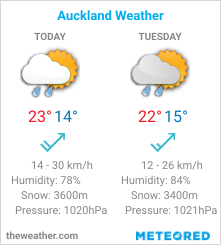
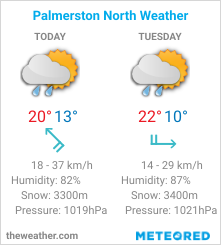
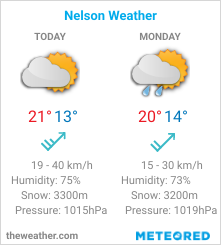
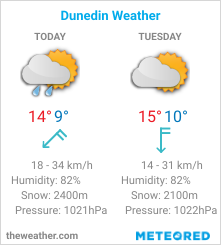
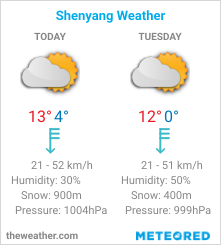
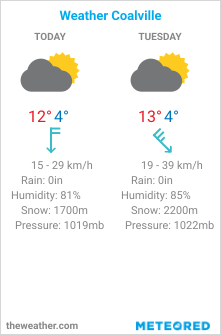
No comments:
Post a Comment
How did you like the post, leave a comment. I would appreciate hearing from you all. Best wishes from JC's Naval, Maritime and Military News